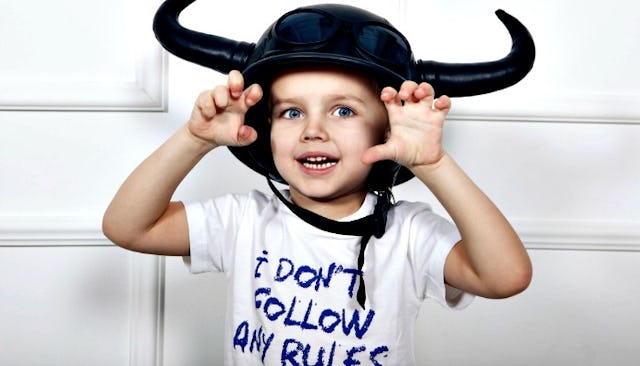Why We Can't Expect Children To Behave In Public

Here’s the thing about kids: They’re people, too.
Seems obvious, right? Human + human = tiny little human.
It makes me wonder why not everyone gets it. Why do some people act as though children are an unknown invasive species from another planet? Why do they react so negatively to the mere presence of tiny little humans?
Here’s the answer: because some people don’t understand the nature of childhood.
There’s a growing trend among adults in our society to expect more from children than they are capable of providing. Diner owners yell at toddlers who throw temper tantrums, because toddlers are expected to have the emotional maturity to know when to stop crying. Adults want to travel in kid-free planes because children don’t know when to be quiet. People want to go out in public and not be bothered by all of those mini-humans and their underdeveloped senses of propriety.
Some people will argue that that’s not a commentary on children, but a commentary on the state of modern parenting. The problem with that is the two go hand in hand. We are parents because our children are born (gasp) children. If you don’t understand the nature of childhood, you misunderstand the nature of parenting.
Parenting is not about just disciplining children who misbehave, though that’s certainly a large part of it. It’s mostly about teaching them how to behave in the first place. That takes a long time and is much, much harder than it sounds.
Human children are not born miniature adults, and teaching them to become adults is hard work. They don’t pop out of the womb with a fully formed ability to function in society, with linguistic capabilities and interpersonal skills and that little voice in their heads that says when enough is enough. The job of a parent is to teach them these things; it’s to guide young humans into adulthood.
One of those lessons is, and will always be, appropriate public behavior. That isn’t a function of nature; it’s almost entirely nurture, and it’s almost impossible to teach without leaving your home.
So if we all understand that children aren’t born with completely developed frontal lobes, why do some people expect toddlers to sit still in public? Not to cry when they’re frustrated? To listen to reason or logic? Those aren’t age-appropriate behaviors for human toddlers. And what do people expect in the meantime, while kids are learning and taking these life lessons to heart? Should parents not go to breakfast with their toddlers? Never travel on an airplane? Never go in public?
That’s a vicious catch-22. We want our kids to grow up and be great people, but the key phrase there is “grow up.” We have to teach them what to do, and it takes years of practice to learn all the ins and outs of adulthood. Parenting involves introducing your children to these age-appropriate experiences and helping them navigate those experiences in an age-appropriate manner. There’s a learning curve, and it’s different for every child, every parent, and every situation. It won’t always go off without a hitch.
It’s reasonable, then, to assume that sometimes kids are going to refuse to cooperate. You know why? Because they’re kids. Adults should no more expect children not to act out in public than they should expect them to fend for themselves in the wild. We don’t expect infants to hunt and forage for their own food, we don’t ask toddlers to make their own clothing, and we don’t expect to sit down and have a conversation with a second-grader about the relative strengths and weaknesses of Leo Tolstoy’s seminal classic Anna Karenina, because that’s ridiculous.
It’s ridiculous to expect anything more than childlike behavior from children. They’re not adults yet. They’re working on it, though. And mom and dad are busy showing them how to do it. That’s the nature of childhood, and the nature of parenting.